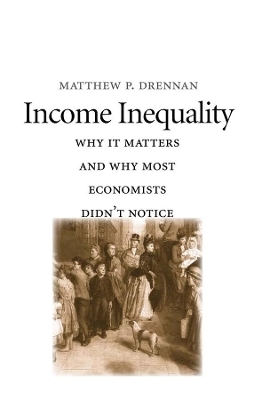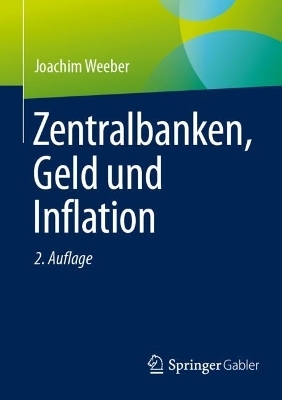
Income Inequality
Why It Matters and Why Most Economists Didn’t Notice
Seiten
2015
Yale University Press (Verlag)
978-0-300-20958-7 (ISBN)
Yale University Press (Verlag)
978-0-300-20958-7 (ISBN)
- Titel z.Zt. nicht lieferbar
- Versandkostenfrei
- Auch auf Rechnung
- Artikel merken
The first book-length treatment to conclusively demonstrate the link between income inequality and the 2008 financial crisis and Great Recession
Prevailing economic theory attributes the 2008 crash and the Great Recession that followed to low interest rates, relaxed borrowing standards, and the housing price bubble. After careful analyses of statistical evidence, however, Matthew Drennan discovered that income inequality was the decisive factor behind the crisis. Pressured to keep up consumption in the face of flat or declining incomes, Americans leveraged their home equity to take on excessive debt. The collapse of the housing market left this debt unsupported, causing a domino effect throughout the economy. Drennan also found startling similarities in consumer behavior in the years leading to both the Great Depression and the Great Recession. Offering an economic explanation of a phenomenon described by prominent observers including Thomas Piketty, Jacob Hacker, Robert Kuttner, Paul Krugman, and Joseph Stiglitz, Drennan’s evenhanded analysis disproves dominant theories of consumption and draws much-needed attention to the persisting problem of income inequality.
Prevailing economic theory attributes the 2008 crash and the Great Recession that followed to low interest rates, relaxed borrowing standards, and the housing price bubble. After careful analyses of statistical evidence, however, Matthew Drennan discovered that income inequality was the decisive factor behind the crisis. Pressured to keep up consumption in the face of flat or declining incomes, Americans leveraged their home equity to take on excessive debt. The collapse of the housing market left this debt unsupported, causing a domino effect throughout the economy. Drennan also found startling similarities in consumer behavior in the years leading to both the Great Depression and the Great Recession. Offering an economic explanation of a phenomenon described by prominent observers including Thomas Piketty, Jacob Hacker, Robert Kuttner, Paul Krugman, and Joseph Stiglitz, Drennan’s evenhanded analysis disproves dominant theories of consumption and draws much-needed attention to the persisting problem of income inequality.
Matthew P. Drennan is a visiting professor of urban planning at UCLA and an emeritus professor in the Department of City and Regional Planning at Cornell University. He lives in Los Angeles, CA.
| Erscheint lt. Verlag | 5.1.2016 |
|---|---|
| Zusatzinfo | 13 b-w illus. |
| Sprache | englisch |
| Maße | 140 x 210 mm |
| Gewicht | 363 g |
| Themenwelt | Sozialwissenschaften ► Politik / Verwaltung ► Staat / Verwaltung |
| Wirtschaft ► Allgemeines / Lexika | |
| Wirtschaft ► Volkswirtschaftslehre ► Finanzwissenschaft | |
| Wirtschaft ► Volkswirtschaftslehre ► Makroökonomie | |
| ISBN-10 | 0-300-20958-4 / 0300209584 |
| ISBN-13 | 978-0-300-20958-7 / 9780300209587 |
| Zustand | Neuware |
| Haben Sie eine Frage zum Produkt? |
Mehr entdecken
aus dem Bereich
aus dem Bereich
Organisationen steuern, Strukturen schaffen, Prozesse gestalten
Buch | Softcover (2024)
Rehm Verlag
CHF 53,20
Buch | Softcover (2024)
Springer Fachmedien Wiesbaden GmbH (Verlag)
CHF 41,95


